Legal Update, December 2022
Alliance Legal Activities Recap
by Issie Karan, Legal Counsel
Happy New Year to everyone! Here’s a quick recap of what we’ve been up to this year:
340B Lawsuits and Other Developments
The legal team devoted significant time this year staying abreast of developments in ongoing litigation related to the 340B program. By some estimates, as many as 37 lawsuits are pending related to the 340B program, with approximately half relating to restrictions on the use of contract pharmacies by at least 17 manufacturers. Most notably for HTCs, which have largely been able to avoid contract pharmacy limitations from manufacturers, a ruling was released this summer in Genesis Healthcare Inc. v. Becerra. This case stems from a dispute over removal of Genesis from the 340B Program by HRSA following an on-site audit conducted in June 2017 and challenges the validity of the longstanding definition of “patient” under the 340B program. We will continue to monitor and update members accordingly as these cases proceed.
Gene Therapy Preparation
This year, the legal team worked extensively with multiple parts of the Hemophilia Alliance team to assist HTCs in preparation for gene therapy products coming to market. Our work involved drafting model agreements for members to use in contracting and advising on other operational challenges. Recently, several HTCs have explored adding new “ship-to” locations to their OPA database listing to allow shipping of gene therapy products directly to co-owned pharmacies with capabilities for their storage and administration. While this approach may work for HTCs within larger systems, we also worked with members needing to make other plans for their patients to access novel therapies. We encourage members to keep reaching out to us with questions and to help with connecting similarly situated members exploring their options.
Conversations with Members Regarding Compliance
As always, the bulk of the legal team’s work with members involves fielding and assisting with questions regarding allowable expenditures of federal funds. More specifically, we help members understand and interpret the Uniform Grants Guidance and other funding requirements. Repeatedly, members have inquired about the application of salary caps on HTC programs as this limitation significantly impacts their ability to attract hematologists with competitive salaries. HTCs frequently inquire about how to support the work of patient chapters in their communities. Additionally, members have asked for advice on allocation of staff time, use of program income to pay for memberships in professional societies for staff, and appropriate indirect cost rates.
We also assisted members which were crafting policies for supporting patients. These programs often want to provide patients with help getting to appointments, paying for therapies, and to address other barriers to care. However, patient assistance programs implicate federal laws related to fraud and abuse. The legal team tries to help members understand these restrictions.
Finally, members reach out to the legal team regularly with questions on 340B program compliance. This year, questions ranged from site registration issues to patient eligibility to billing and finally review of policies and procedures.
For next year, we will work with the operational team to start building a frequently asked questions area on the Hemophilia Alliance website to remain responsive to these inquiries.
Also in this Issue…
Notes from Joe
· Looking Back on 2022
Alliance Board Update
· Welcome New Alliance Board Members!
Alliance Update
· Save the Date for Alliance Meetings for 2023!
· HTC Wall of Walkers 2022 Update
· Flashback to the Fall HTC Member Meeting in October
Washington Update
· 2022 Wrap Up
Payer Update
· Recap of Payer Activity
Notes from the Community
· Hemophilia Alliance Foundation: Announcing Project and Patient Assistance Grants!

Comments are closed.